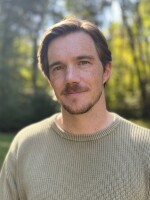On Monday, Aug. 21 millions of Americans will experience a cosmic event of a lifetime: a total solar eclipse. This is the first time in 99 years that people from coast to coast can witness the moon completely covering the sun.
Those in the path of totality are expected to catch glimpses of four planets, the sun’s outer atmosphere and bright stars. While city officials in parts of North Carolina are preparing for an unprecedented number of tourists, science lovers and eclipse chasers are finalizing their plans to be at just the right spot to witness the minutes-long event. Host Frank Stasio talks with experts and eclipse lovers about the history, science, and culture of this cosmic event.
He talks with Amy Sayle, an educator with the Morehead Planetarium and Science Center, about what people across North Carolina can expect to see in the sky. He is joined by Greg Redfern, NASA Jet Propulsion Laboratory Solar System Ambassador, to preview the projects NASA will undertake during the eclipse.
He also speaks with Helen Chickering, reporter for Blue Ridge Public Radio News, about how towns and organizations in western North Carolina are preparing for the eclipse.
He then discusses the historical and cultural significance of these events with David Baron, author of “American Eclipse: A Nation’s Epic Race to Catch the Shadow of the Moon and Win The Glory of the World” (Liveright/ 2017).
He also speaks with Michael Crowe, Cherokee Friends Manager at the Museum of the Cherokee Indian, and Barbara Duncan, education director at the museum and a Cherokee language professor at the University of North Carolina-Asheville, about Cherokee beliefs surrounding the sun and eclipses and planned events for this historic event.
EXPERTS ON WHAT'S IN STORE FOR NORTH CAROLINA:
The Eastern Band of Cherokee preserved their own story for the eclipse
"We're very aware of celestial happenings, and it's very much ingrained in our material culture as well as it is our oral tradition. But there's a story concerning eclipses in general. It talks about when the sun or the moon is eclipsed, it's because the frog has come up from the underworld and is trying to swallow the sun."
- Michael Crowe, Cherokee Friends Manager at the Museum of the Cherokee Indian
What will North Carolinians see?
"If you are lucky enough to be in that path of totality, the south-western part of North Carolina – and let's keep fingers crossed for clear skies that day – you'll have a very different experience from those who stay only where it's partial. And even Asheville at its 99 percent, that's only a partial solar eclipse ... You'd think, 'Oh 99 percent eclipsed that'll be 99 percent of the full experience!' But it's not. I think people will be surprised to discover just how much sunlight one percent of sunlight is."
- Amy Sayle, educator at Morehead Planetarium and Science Center
Why are scientists so fired up about the total eclipse?
"When we look at the sun – and like Amy says through our safe and approved solar eclipse glasses – what you are seeing is the surface of the sun. It is not a solid body. It is a hot gaseous body, but it's still, we call it, the surface. And that's about 8,000 degrees or so. But only during a total solar eclipse from the ground, when we observe it, can we see what we call the sun's corona. This is the outer atmosphere of the sun that extends just above the surface of the sun beyond what we call the chromosphere, which people can see in an eclipse and with special telescopes. But the corona extends out into space, and the temperature grows from about 8,000 to 10,000 degrees Fahrenheit to 1,000,000 degrees Fahrenheit ... And scientists don't know why this happens."
- Greg Redfern, NASA Jet Propulsion Laboratory Solar System Ambassador
It's a slippery slope from casual watcher to full blown umbraphile
"I was on the island of Aruba, and I went down there in 1998 thinking that this would be an interesting intellectual experience. You know, I was a science journalist and wanted to see what a total solar eclipse was about. Well it was the most awe-inspiring, emotional, and I dare say spiritual experience I had ever had. It just was mind-blowing. And I decided I just needed to experience it again."
- David Baron, umbraphile and author of “American Eclipse: A Nation’s Epic Race to Catch the Shadow of the Moon and Win The Glory of the World”
Alright, I'm ready to join the umbraphiles. What's the plan?
"Patience, leave early, take alternate routes, have a full tank of gas, pack snacks and activities for the kids. So really think of it like that Super Bowl event. Be prepared to hang out in the parking lot to and from and just sort of enjoy the ride. We do know that message boards along the highway will display eclipse parking and traffic updates. They are suspending construction on Monday, and construction crews will help with traffic flow. That's with the highway patrol. And the [Blue Ridge] Parkway, weather permitting, will be a great place to be, but you also have to be careful because they're asking drivers not to pull over on the side unless you are at a designated overlook which will probably fill up pretty quickly."
- Helen Chickering, Blue Ridge Public Radio reporter and host













